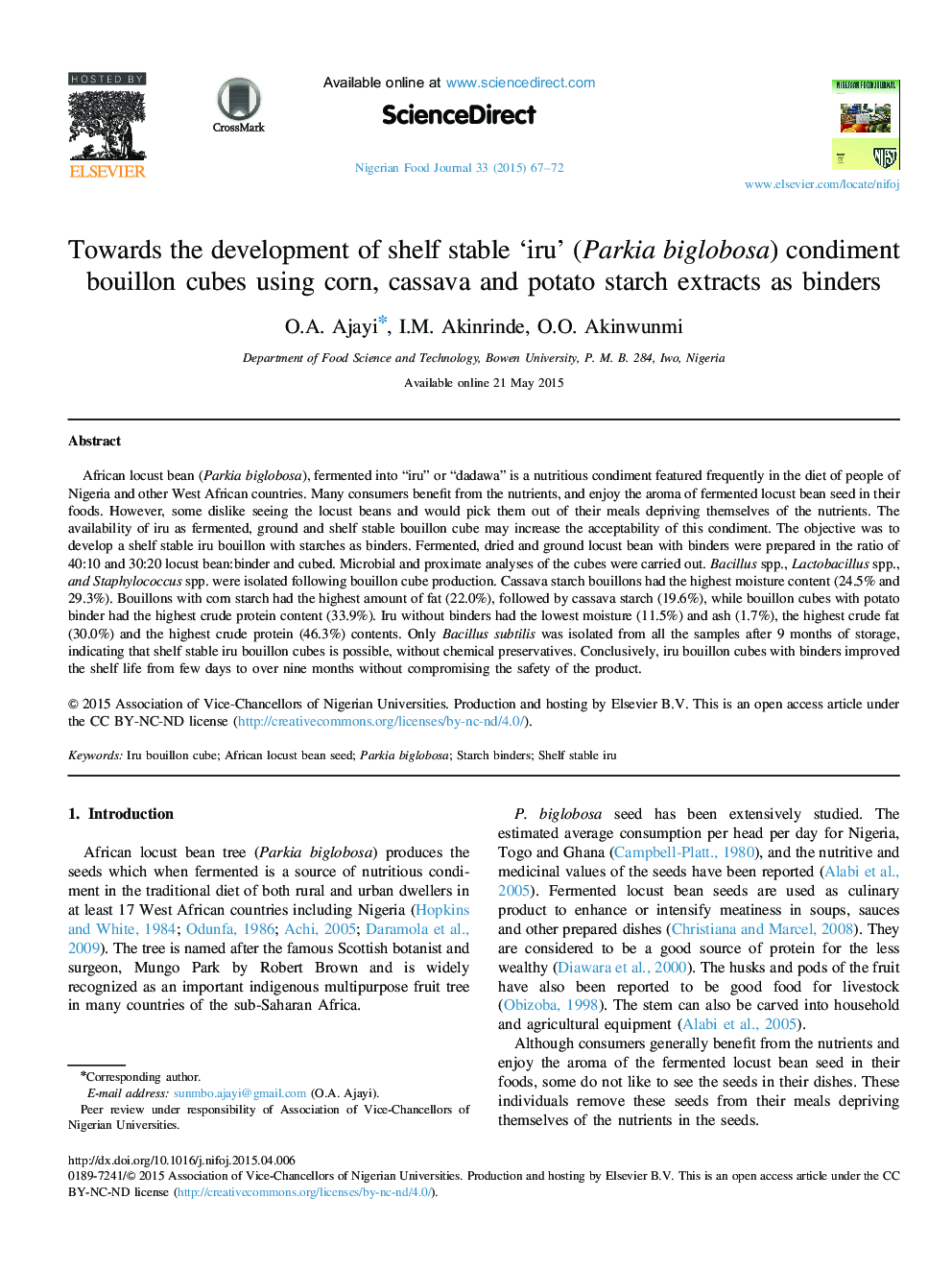| Article ID | Journal | Published Year | Pages | File Type |
|---|---|---|---|---|
| 4565666 | Nigerian Food Journal | 2015 | 6 Pages |
African locust bean (Parkia biglobosa), fermented into “iru” or “dadawa” is a nutritious condiment featured frequently in the diet of people of Nigeria and other West African countries. Many consumers benefit from the nutrients, and enjoy the aroma of fermented locust bean seed in their foods. However, some dislike seeing the locust beans and would pick them out of their meals depriving themselves of the nutrients. The availability of iru as fermented, ground and shelf stable bouillon cube may increase the acceptability of this condiment. The objective was to develop a shelf stable iru bouillon with starches as binders. Fermented, dried and ground locust bean with binders were prepared in the ratio of 40:10 and 30:20 locust bean:binder and cubed. Microbial and proximate analyses of the cubes were carried out. Bacillus spp., Lactobacillus spp., and Staphylococcus spp. were isolated following bouillon cube production. Cassava starch bouillons had the highest moisture content (24.5% and 29.3%). Bouillons with corn starch had the highest amount of fat (22.0%), followed by cassava starch (19.6%), while bouillon cubes with potato binder had the highest crude protein content (33.9%). Iru without binders had the lowest moisture (11.5%) and ash (1.7%), the highest crude fat (30.0%) and the highest crude protein (46.3%) contents. Only Bacillus subtilis was isolated from all the samples after 9 months of storage, indicating that shelf stable iru bouillon cubes is possible, without chemical preservatives. Conclusively, iru bouillon cubes with binders improved the shelf life from few days to over nine months without compromising the safety of the product.
